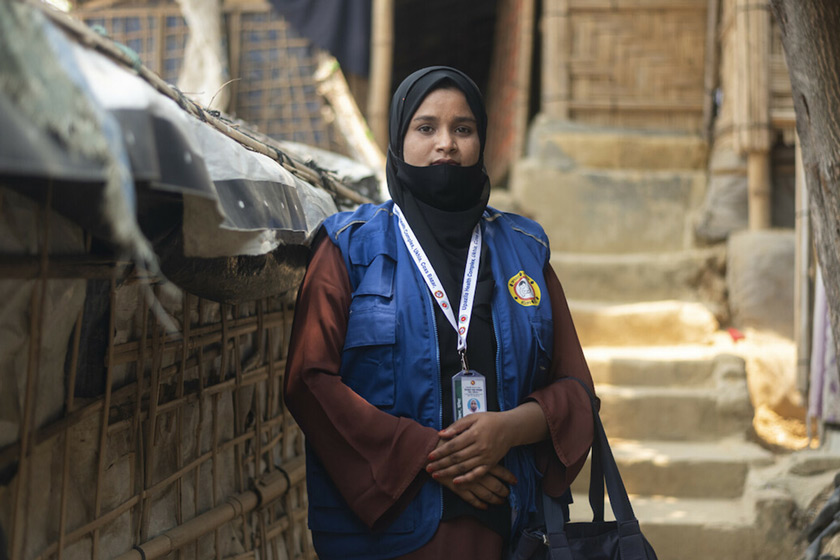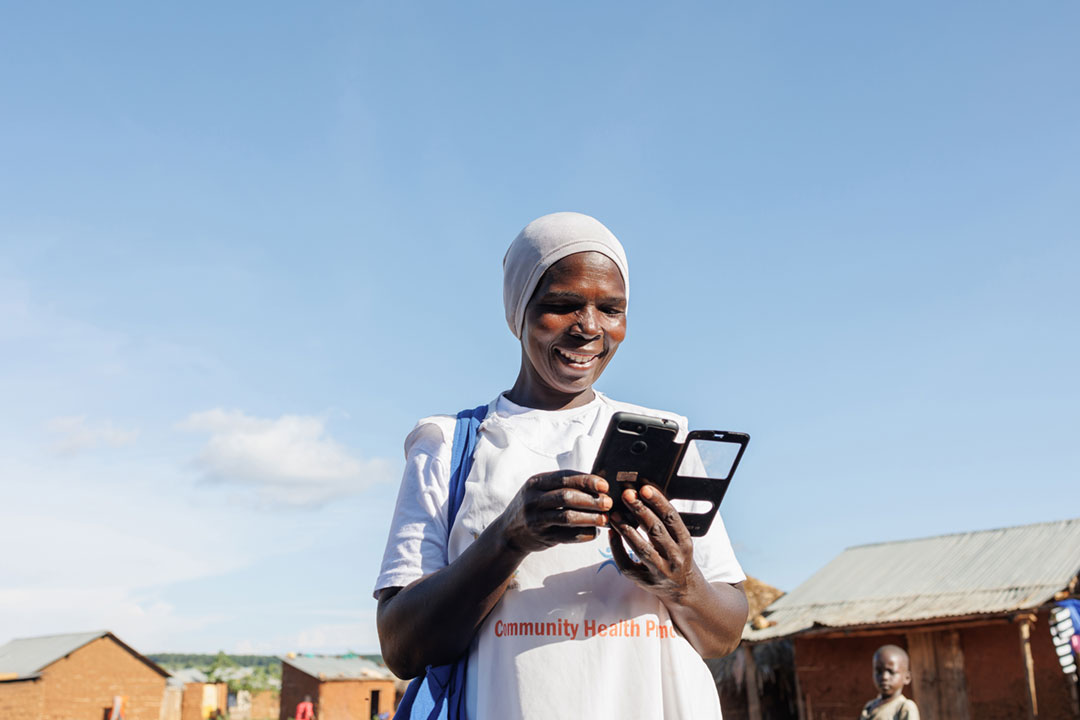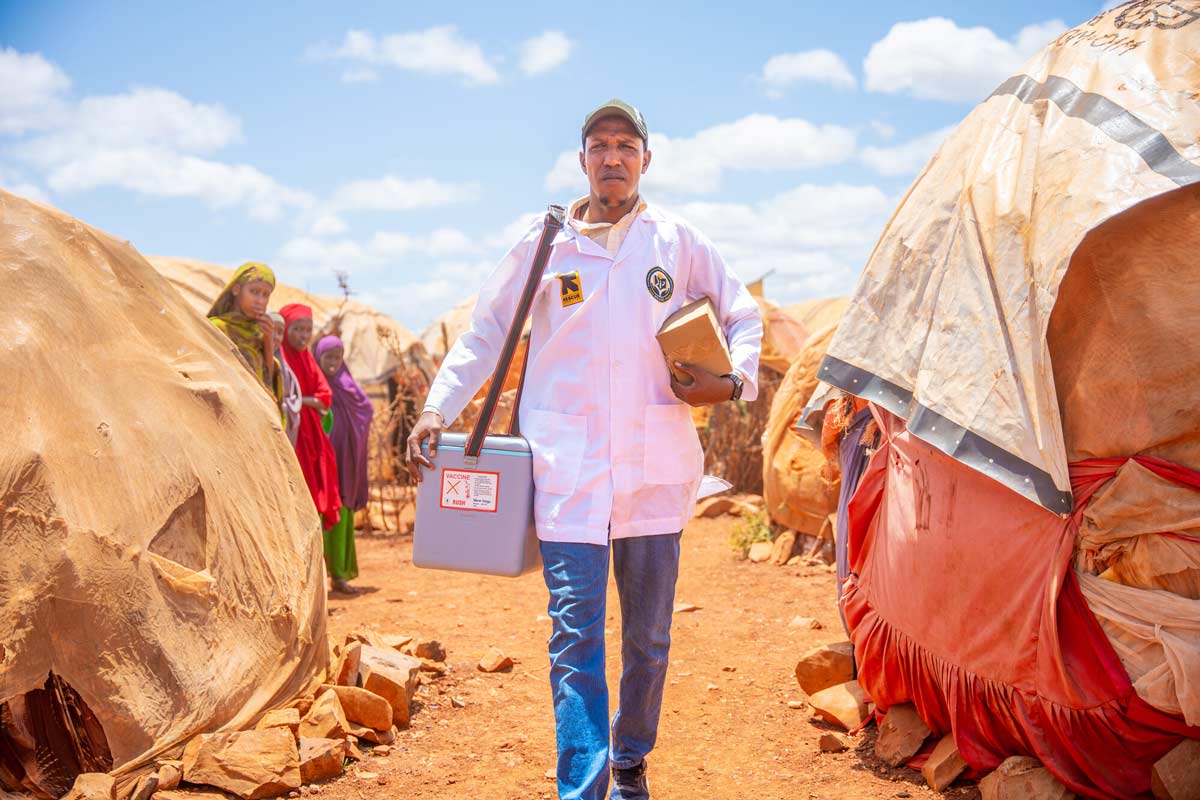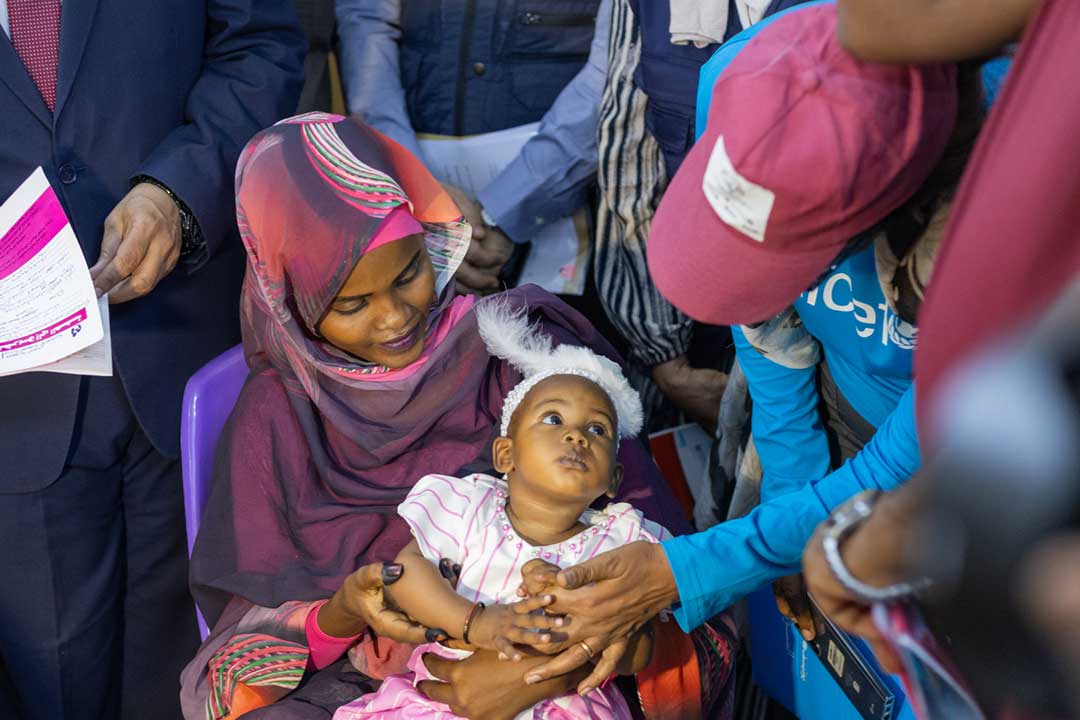Treading a fine line: Immunisation in conflict settings
What do you do when rebel forces take over an area and delivering vaccines becomes fraught with danger? In Cameroon, Alain Dakam negotiated with the rebel groups – and found them eager to take part in immunisation activities.
- 15 March 2024
- 5 min read
- by Ian Jones , Charlotte Mbuh

The most recent World Bank assessment presents a depressingly long list of countries and territories affected by conflict – 19 in 2023/2024 – with a further 20 affected by institutional and social fragility.
In these settings, health service delivery is particularly vulnerable. Facilities may be attacked or looted, and health workers may be understandably too fearful for their own safety to venture into conflict-affected areas.
When conflict erupted across large parts of Cameroon in 2016, Alain Dakam and his team in Wabane District in the Southwest Region were among those facing these challenges. Bangang Village, for example, which included a ten-bed health centre with four health workers supporting a population of just over 4,000 people, had previously enjoyed high vaccine coverage levels. But with the onset of conflict, outreach services were often too dangerous to run, and coverage plummeted.
The area was now under the control of rebel forces, and a major challenge for Dakam and other health teams was their suspicion of outsiders. Anyone from outside the area was seen as a potential agent of government forces. Inhabitants were instructed not to seek or accept outside help.
Dakam and his team realised that the usual way of reaching communities, relying particularly on community health workers, would need to be rethought. With their local knowledge, community health workers knew who was now in effective charge of the area. Dakam's goal was to persuade these rebel leaders of the need to allow his team access to the local population to provide immunisation and other essential health services.
"We wanted to make it clear that we were operating according to the principles of neutrality and impartiality, and that we had no goals other than to protect the health and well-being of the local population, particularly young children."
Accessing the rebel leaders directly was impossible. Instead, he was able to engage with their local protégés, trusted right-hand men who held great influence over local populations. Dakam and his team carefully explained what they were hoping to do and why it was so important. His suggestion was that the leaders could nominate individuals to accompany the vaccination teams, so they had confidence that the activities were solely health-related, and to ensure that local inhabitants had confidence that they would not be punished for accepting services.
As it turned out, Dakam was so persuasive that the protégés actually volunteered to take part in the vaccination activities. His team was able to gain access to areas that had previously been completely inaccessible.
"To our surprise, these negotiations went even better than we imagined. The protégés who were acting as intermediaries were so convinced of the importance of what we trying to do that they offered to act themselves as guides to the vaccination teams. They said they would also be willing to do it without payment, for the good of the community."
Have you read?
Dakam emphasises just how sensitive these conversations were. With suspicions high, he and his colleagues had to be constantly mindful of the need not to be seen as "the enemy" or acting with ulterior motives. Throughout, their constant message to the rebel representatives was that they were acting solely on behalf of the communities. But at the same time, it was important that his team was not seen to be abetting insurgents.
"The other major challenge was that, the more you got on with one side (the secessionists), the more you were suspected by the other camp (central government army) and vice versa. It's a very delicate path to tread. We sometimes make small gestures of gratitude, such as bread or other small items of food. But we can't go overboard, in case the central government thinks we are supplying the secessionists."
Conflict settings are possibly the most challenging that a health service will face. The risk of harm is very real and ever-present. As Dakam points out, there is no textbook guide describing what to do in these circumstances. Each situation is unique, every personality involved is different. Dakam hit upon an approach, based on dialogue, building trust and an emphasis on neutrality and social welfare, that proved effective in his setting.
"It took a great deal of tact to demonstrate our sincerity and above all the non-profit nature of health activities – especially as they couldn't understand why the people who were fighting them would still take care of their health. We had to point out that health care is neutral and concerned only with the well-being of individuals, without bias or political interest. These messages took a long time to be digested and accepted."
Dakam shared his experience as part of Movement for Immunization Agenda 2030 (IA2030) facilitated by the Geneva Learning Foundation, a Swiss-based non-profit that organises peer learning activities for health workers from the Global South and other disadvantaged settings. His story has also been captured in a publicly available case study. It is an engrossing story in its own right, but is of particular interest to the increasing number of health workers who face the challenge of delivering services amid ongoing conflict and social turmoil.
Learn more about the Movement for Immunization Agenda 2030 (IA2030)
Download the complete IA2030 case study:
- The Geneva Learning Foundation. Immunization Agenda 2030 Implementation Case Study 26 (Version 1, November 2023). Alain Dakam – Negotiating access in disputed and volatile areas. Geneva: The Geneva Learning Foundation; 2023. https://doi.org/10.5281/zenodo.8402839
- French version: La Fondation Apprendre Genève. Étude de cas sur la mise en œuvre du Programme pour la vaccination à l'horizon 2030 n° 26. (Version 1, novembre 2023). Alain Dakam – Négocier l'accès dans les zones contestées et instables. Genève : La Fondation Apprendre Genève ; 2023. https://doi.org/10.5281/zenodo.8420664









